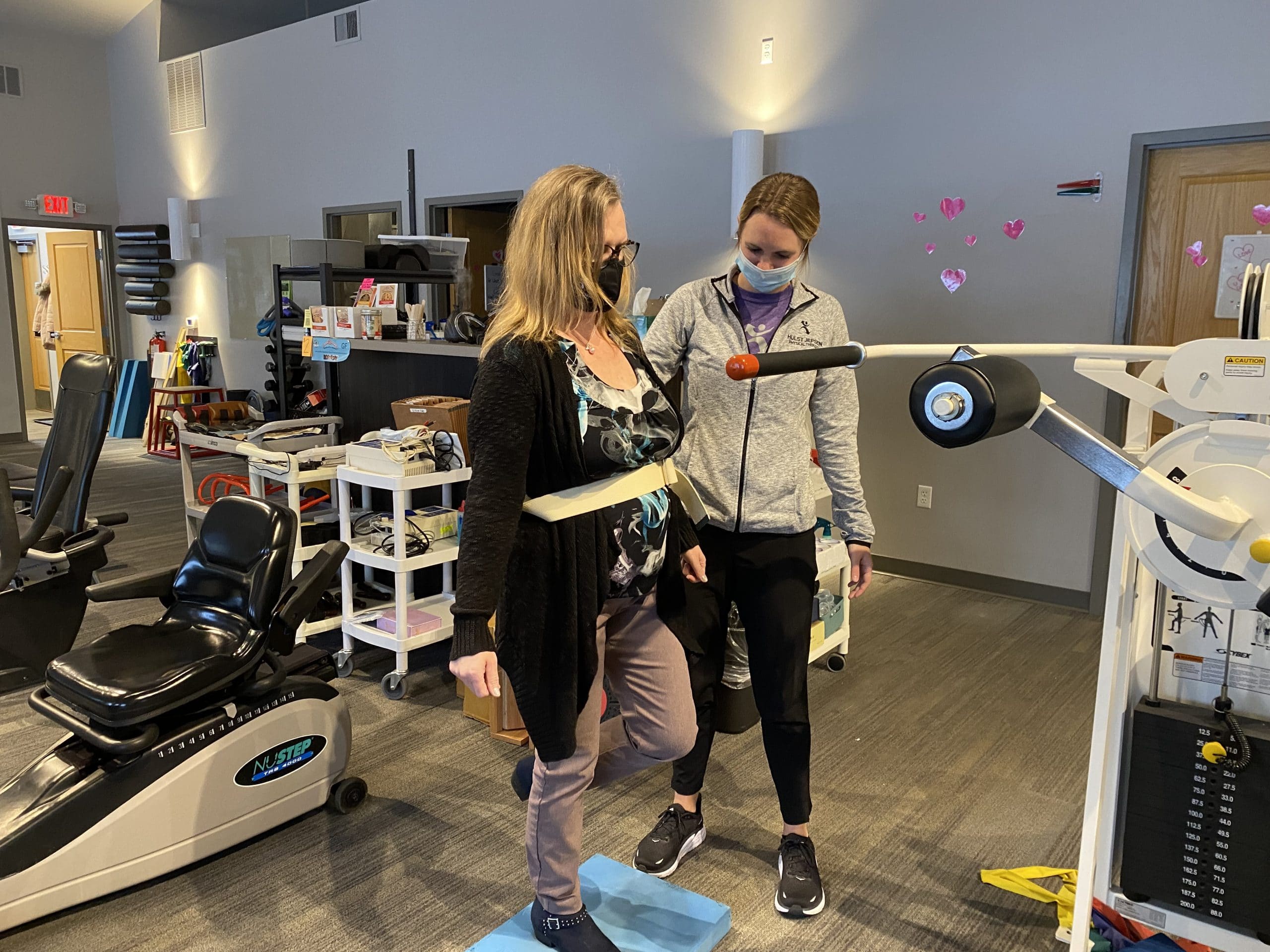Treating MS at Different Stages

Physical Therapy at Different Stages of Multiple Sclerosis
Multiple Sclerosis (MS) is a progressive autoimmune disease of the central nervous system and is the most common non-traumatic neurological disease of young adults (usually affecting people between the ages of 20-50 years old). There are roughly 10,000 new cases diagnosed in the United States each year with over 2.3 million diagnosed worldwide. Symptoms of MS vary based on the individual but the most commonly reported symptoms include the following:
- Increased fatigue
- Depression
- Weakness
- Balance deficits
- Muscle spasticity
- Paralysis
- Pain
There are 4 different types of MS one can have:
- Relapsing-Remitting MS: This is the most common form of MS with 75-85% of people being initially diagnosed with this form. In this form, people will usually have unpredictable attacks of neurologic symptoms, which may or may not lead to permanent deficits and are followed by periods of remission.
- Primary Progressive MS: In this form, people will typically have a steady increase in disability without attacks of symptoms.
- Secondary Progressive MS: People who are originally diagnosed with relapsing-remitting MS will often times progress to this form where they begin to decline without periods of remission.
- Progressive-relapsing MS: This is the least common form of MS that is characterized by a steady decline since the onset of diagnosis with superimposed attacks of symptoms.
Physical therapy has been shown to be helpful for those diagnosed with MS for several reasons such as strengthening your muscles to help with your walking and overall balance or improving your flexibility to help reduce muscle spasms. Here are some more specific ways in which physical therapy can be helpful during different stages of MS:
- After being diagnosed: Physical therapists can provide a baseline examination to see what your current physical abilities are so they can be compared later with future abilities. A physical therapist can discuss and educate you on some of your identified limitations so that they can help you understand what levels of exercise and physical activity are safe and appropriate for you.
- During relapse/”flare-up” of symptoms: During this period, you may have difficulty with everyday tasks including walking, dressing/bathing, working, etc. By meeting with your physical therapist, they can re-examine you and compare your current findings to your baseline findings to see where you are. Physical therapy after a relapse can be especially beneficial in helping you regain some of the strength you may have lost so that you can ultimately improve your overall functioning.
- For progressive or more advanced forms of MS: If you have a progressive form of MS or are in a more advanced course of the disease process, a physical therapist can help teach you how to compensate for some of the changes you may be experiencing. They can also help with teaching you how to use an assistive device such as a walker or wheelchair should you need one. Those with advanced MS who may no longer be able to walk can still benefit from physical therapy in several ways such as teaching you how to sit/relieve pressure in order to reduce the risk of developing pressure sores or develop and maintain upper body strength to assist with transfers and use of assistive devices.
If you or a loved one have been diagnosed with MS, please don’t hesitate to reach out to schedule an evaluation or free consult with one of our physical therapists! Just call 616.256.8679 or visit https://www.hjphysicaltherapy.com/request-appointment/. We would be happy to help in any way we can!
References:
- Rumrill PD, Bishop M, Chan F. Multiple sclerosis: A high-incidence immune-mediated disease of the central nervous system. J Vocat Rehabil. 2019;51(1):1-9
- Barin L, Salme A, Disanto G et al. The disease burden of multiple sclerosis form the individual population perspective: which symptoms matter most? Scler. Relat. Disord. 2018;25,112-121..
